The hushed audience in the crowded theatre fell silent.
Tension hung in the air like an ominous cloud.
A snap of the fingers and the show begins. An evening in 1891, and Nikola Tesla is on stage.
A moment and a red, fiery ball of fire flashes in his hand. The man, like a god, manipulates this flame, bringing it closer, now to his white tailscoat, now to his black hair. The astonishment of the audience is limitless, the magician is unharmed, and as if nothing had happened, he puts the mysterious fire into a wooden box, as if it were an ordinary tennis ball.
"Now I will light up the space as if we were all out for a walk, on a sunny day." - declares Tesla.
And so, the theatre, his performance venue on New York's South Fifth Avenue, is illuminated by an extraordinary mystical light. The inventor jumps onto a platform connected to an electric voltage generator.
Slowly he raises the regulator until his body is exposed to two million volts. Electric shocks crackle around his body. Lightning and flames burst from the palms of his hands.
When Tesla turns off the voltage source, as onlookers later tell us, a blue glow erupts around him.
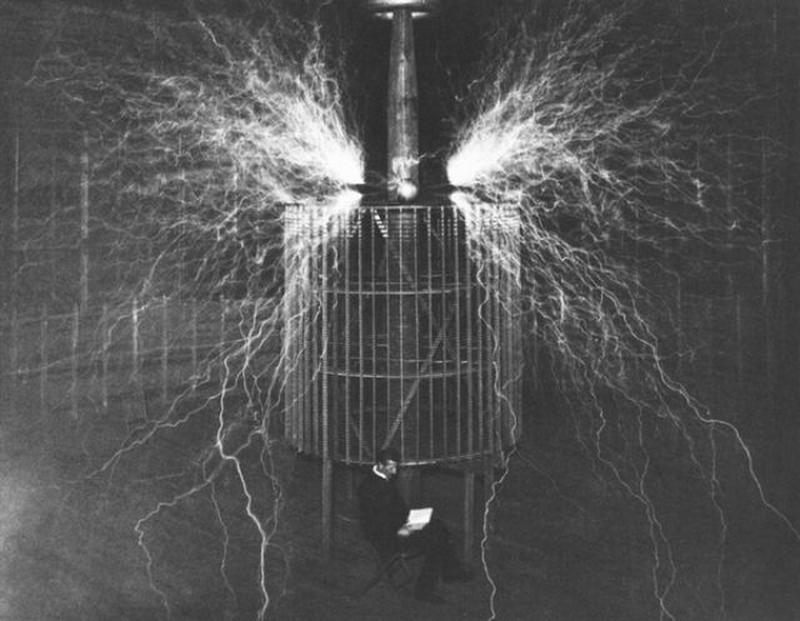
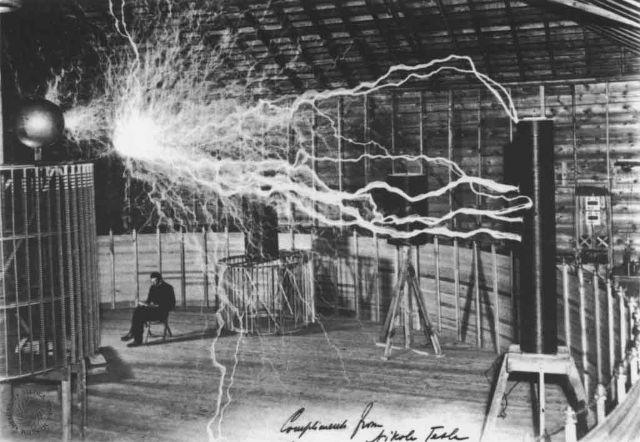
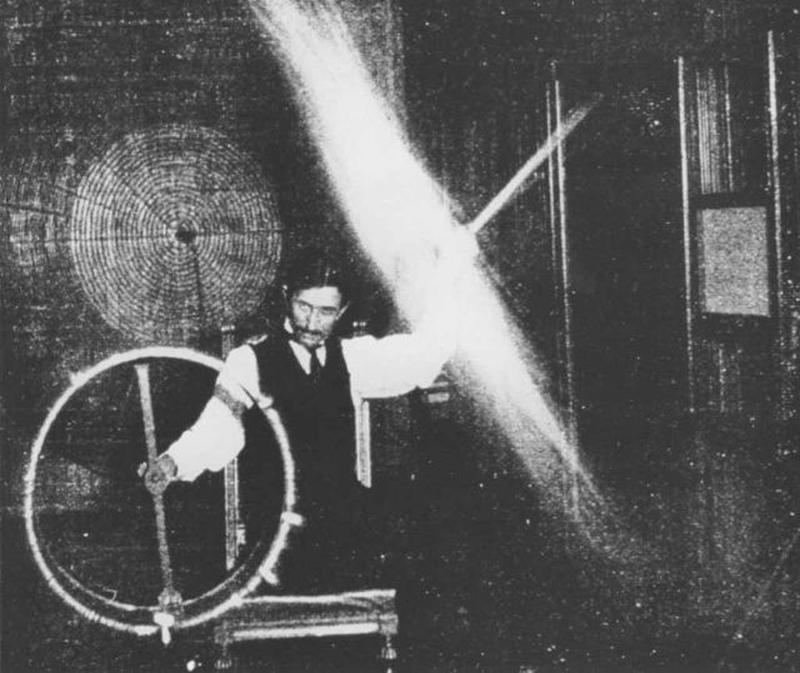
A life of genius. The attraction of electricity.
The mysterious power of electricity has fascinated Tesla since his childhood. It is even said that on the day he was born on 10 July 1856 there was a violent thunderstorm. He often liked to watch lightning flash across the sky as a child.
"On some occasions the air around me was filled with lively tongues of fire," Tesla recalls in his autobiography.
Usually these visions were accompanied by inner images. The visions were so strong that he observed the environment and objects so clearly that he could not distinguish and understand what was real and what was a play on the imagination.
Over time, he learned to control these unusual abilities and tried to live life to the full. The power of imagination is evident at the age of 17, when he begins to 'get serious about inventions'. He didn't need any models, drawings or experiments to design devices, the whole creative process took place in his mind. It was there that he built his equipment, corrected mistakes and set in motion what he had conceived.
It is quite indifferent to me to build a turbine in my head or in the workshop," he wrote, "in my imagination I can even notice when it is out of balance.
In 1875, 19-year-old Nikola received a scholarship to the Polytechnic of Graz, at which time he developed a passion for reading. His obsession with books was so obsessive that sometimes from three in the morning until eleven at night he didn't tear himself away from books. Which did not interfere with his studies at all. In his first year he passed nine examinations with distinction.
"I was obsessed with a real passion: I had to finish everything I had started," he recalled.
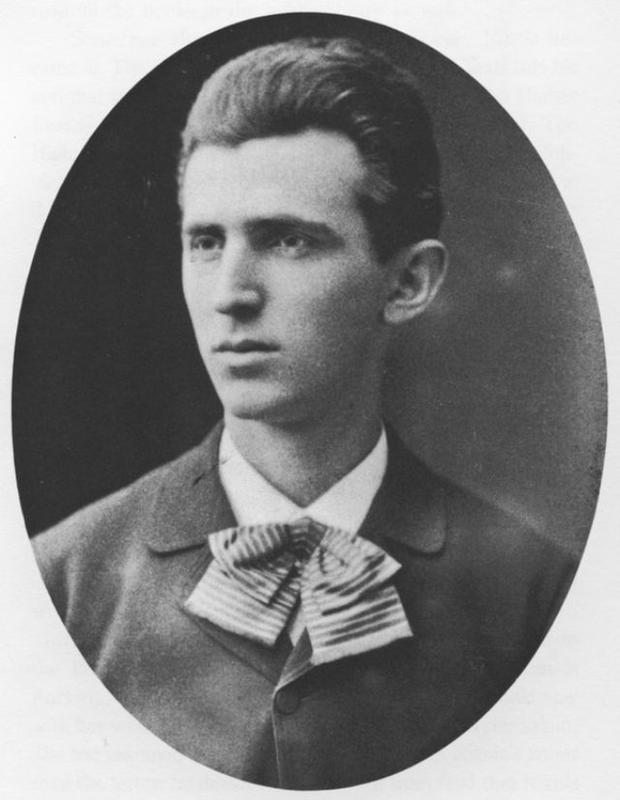
"I was obsessed with a real passion: I had to finish everything I had started," he recalled.
In Graz, Nikola Tesla finds exactly the object of study that will accompany him for the rest of his life: electricity. Most people at the time regarded electric current as a mysterious liquid that flowed down the wires through the intervention of a higher power.
Tesla, on the other hand, wanted to master the laws of this fluid. And instinctively he knew that the future would belong to a system that was not yet applicable - alternating current.
At the time, all electrical appliances were powered by direct current, which flowed continuously in one direction. Scientists of the time considered AC-powered electric motors unthinkable. But Nikola Tesla believed in his intuition. In his imagination, he tested one AC motor after another.
In 1898 he developed the first radio remote control. And the following year, from a laboratory near Colorado Springs, he managed to send radio waves more than 1,000 kilometres away.
In 1900 Nicola found a sponsor to build a futuristic antenna tower on Long Island: His goal was to send high-energy waves into the upper atmosphere to distribute energy around the globe. But, shortly before the project was completed, the investor changed his mind. After all, if anyone in the world could use the energy produced on Long Island unchecked, where would the profits come from? In 1917, the steel scaffolding of the tower was blown up and the scrap metal sold for a thousand dollars.
That same year, the inventor was to receive the prestigious Edison Medal. But Tesla refused. After all, to receive the medal would have meant coming second to Edison and acknowledging the superiority of his ideas. Bernard Arthur Behrend, chairman of the jury, persuaded Nikola to accept it.
"If we were to strip the industrial world of everything Tesla invented," Berend once said, "the wheels of all industry would stop turning, electric cars and trains would stop, cities would sink into darkness, and factories would empty out and become useless. His work is of such magnitude that it has become the very basis of all industry."
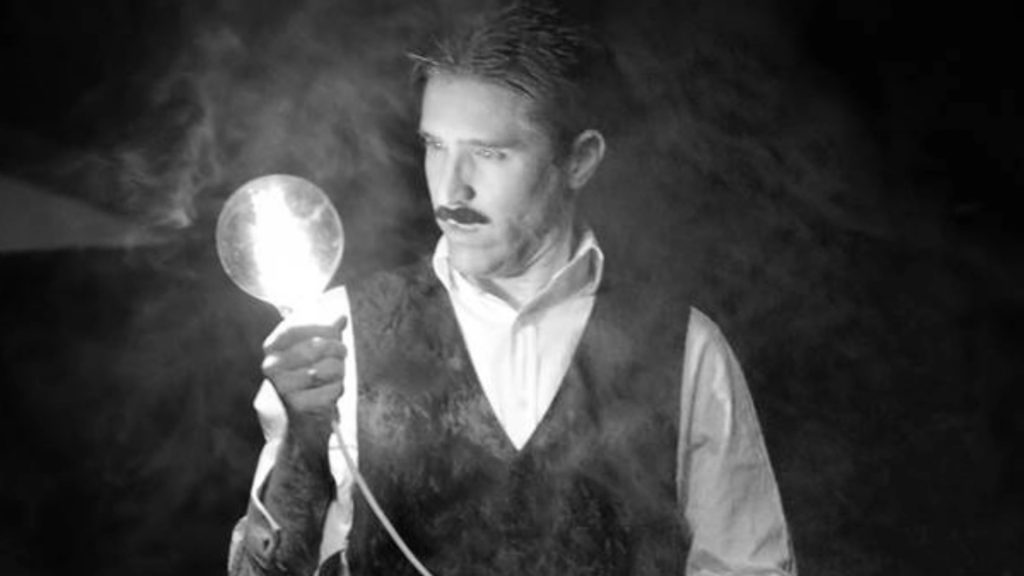
Inventor, Genius... But life, unfair.
"The Wizard of Electricity" liked to charm the high society of New York with his visions. And to show journalists the power and safety of the electric current system he discovered. Spectacular performances were part of his propaganda in the war to electrify the world.
It was a war that Tesla was waging (albeit against his will) against another inventor, equally famous. A man of a different character who was the exact opposite of Tesla: Thomas Alva Edison. Easy-going, cunning, adept at business.
There was a time when Tesla worked for several years in Edison's Paris regional office. The young engineer worked there for only six months. This was probably because Edison had promised to pay $50k (today $12m) if Nikola would constructively modify DC machines designed by his company. What was needed was not just design changes, but a radical overhaul of existing machines. Tesla worked tirelessly to find a solution and did so, but Edison said it was a joke and there would be no bonus.
Edison measured the value of discoveries by the amount of dollars received by his company. For Tesla, it was not just about money: he argued that the purpose of invention was first and foremost to harness natural forces for human needs.
In the end, it is Tesla who will win the battle for electric current. And yet - as often happens in life - true geniuses become outcasts. The older he got, the less money he made. Due to accumulated unpaid bills he kept getting evicted from hotels. On top of his arrears, neighbours were also laying claims for the discomfort and clutter caused by the inventor's penchant for pigeons. As a result, his former employer, Westinghouse began paying rent and was paying the neglected genius $125 per month as "his consulting fees". Apparently the company was concerned that the poor scientist was harming their reputation. Tesla also received a modest Serbian pension until his death. Despite his fame and 700 patents, the wizard of electricity was never an economic success.
On 7 January 1943, at the age of 86, Nikola Tesla, the most selfless inventor in history, died in a New Yorker hotel room on the night of 7-8 January 1943, in his 87th year. A maid found him two days later, ignoring a "Do Not Disturb" sign. The doctor's diagnosis was a heart attack. Although he never became famous or wealthy in his time, he nevertheless made the greatest contribution to the development of modern radio electronics.
"The biggest losses in my life have not been money, but peopleI am not talking about the dead, the death of a loved one is painful, but death is a natural process that cannot be avoided. I am talking about those who betrayed and disappointed me. It hurts to be disappointed in people, especially those I used to before"
DAYS. I CAN EXPLAIN A LOT. NICOLA TESLA
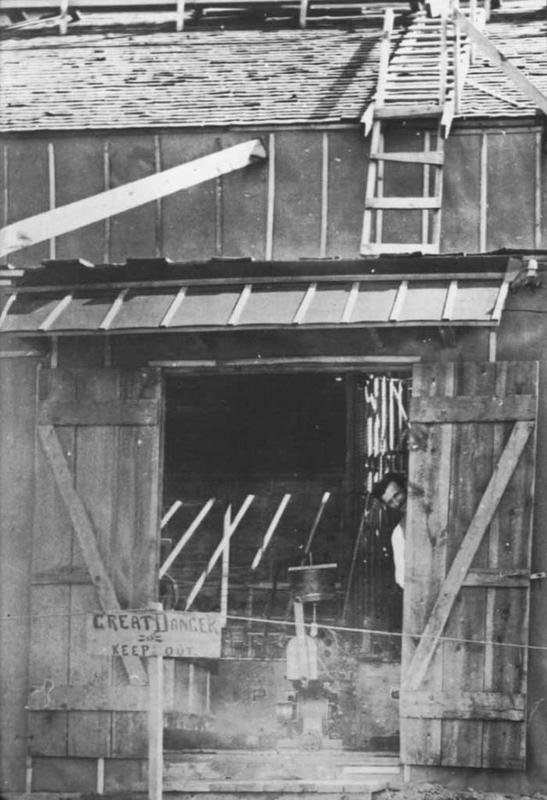
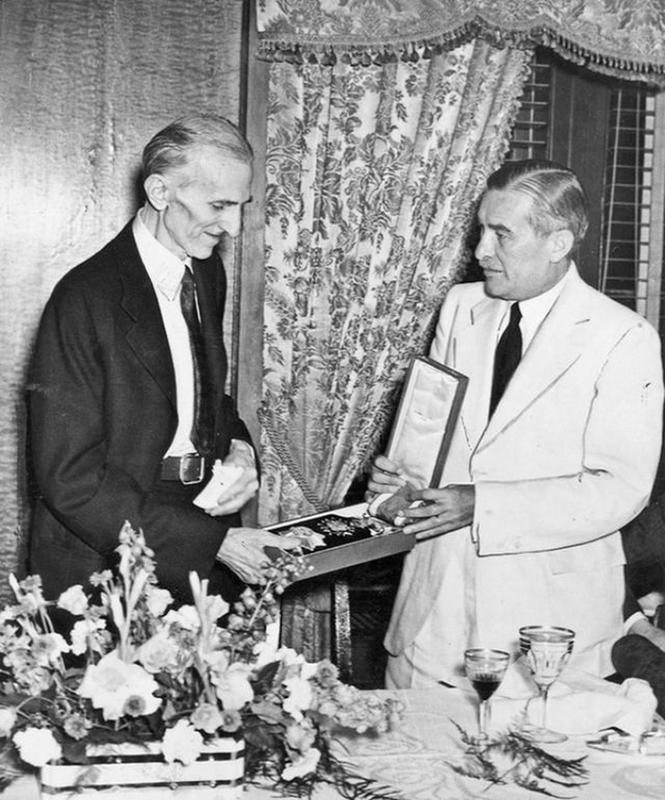
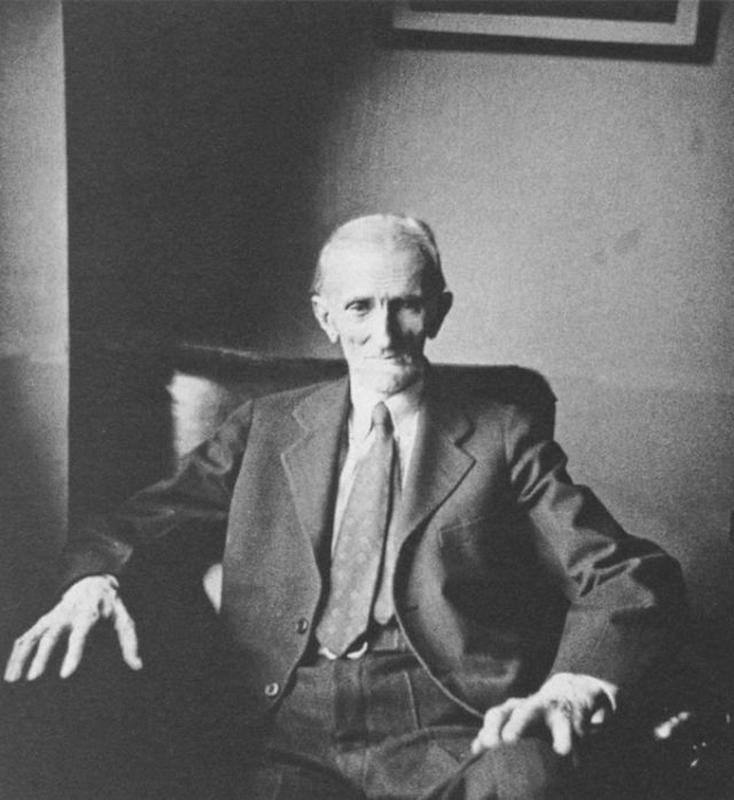
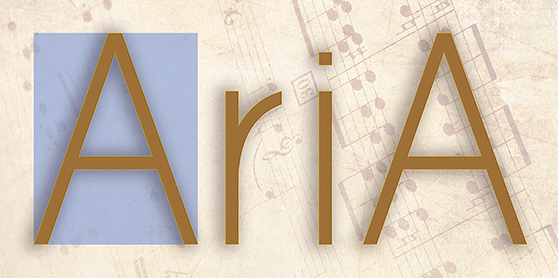
 and then
and then 
